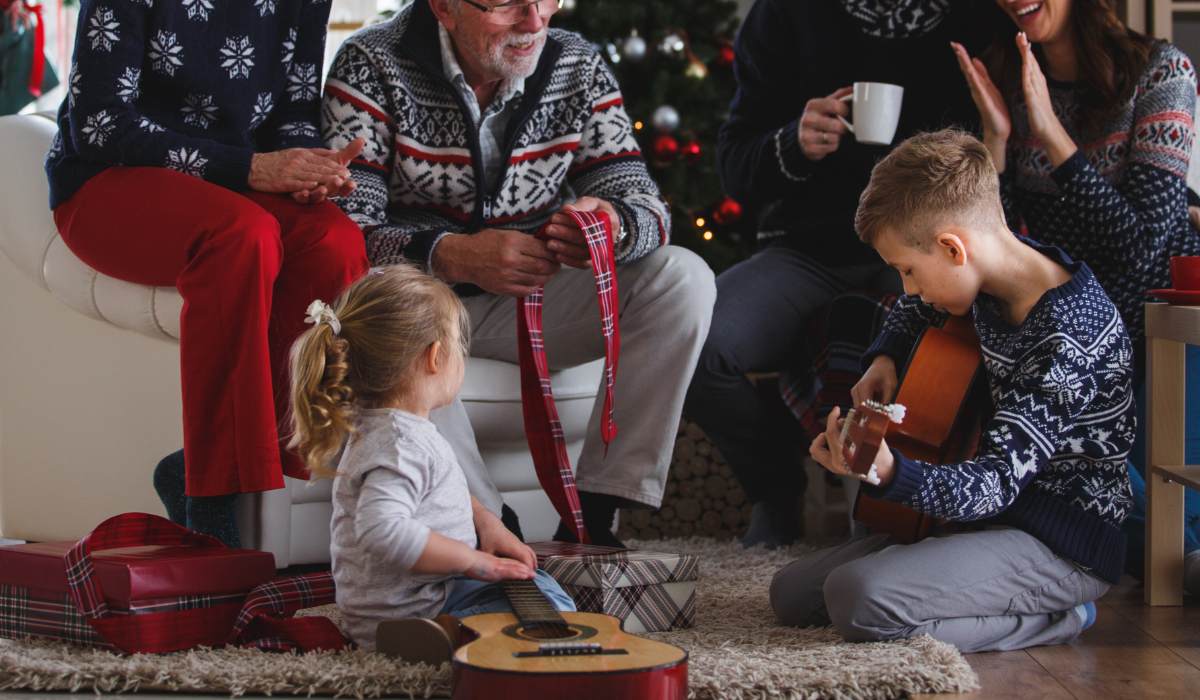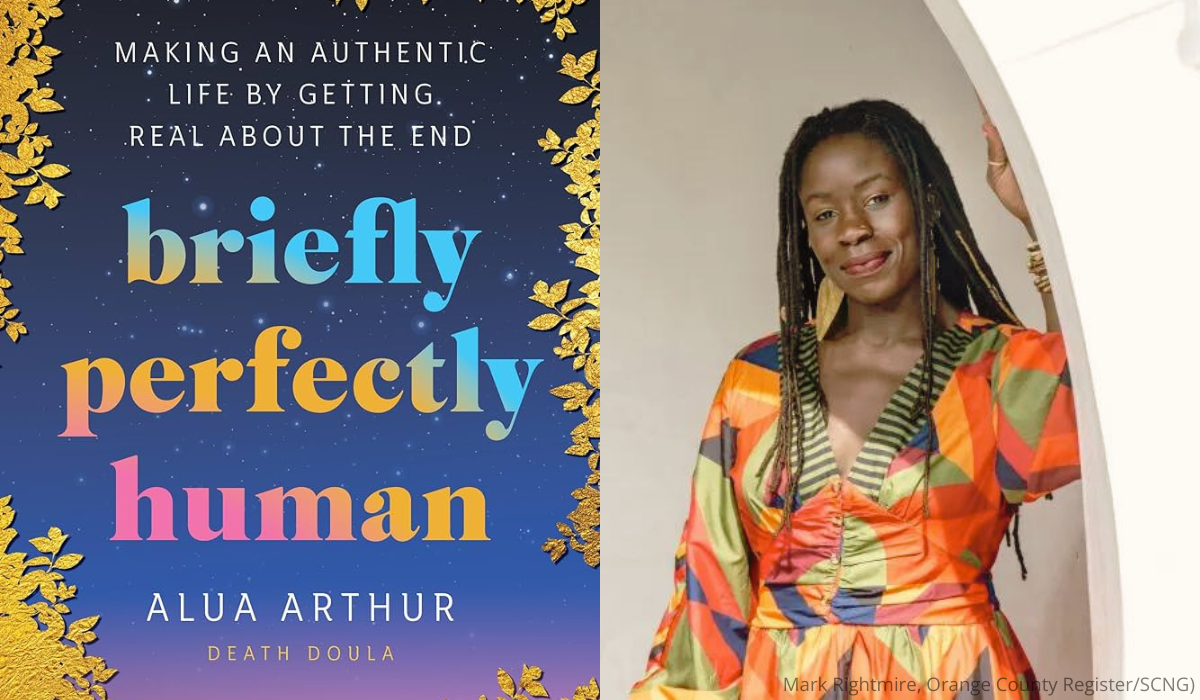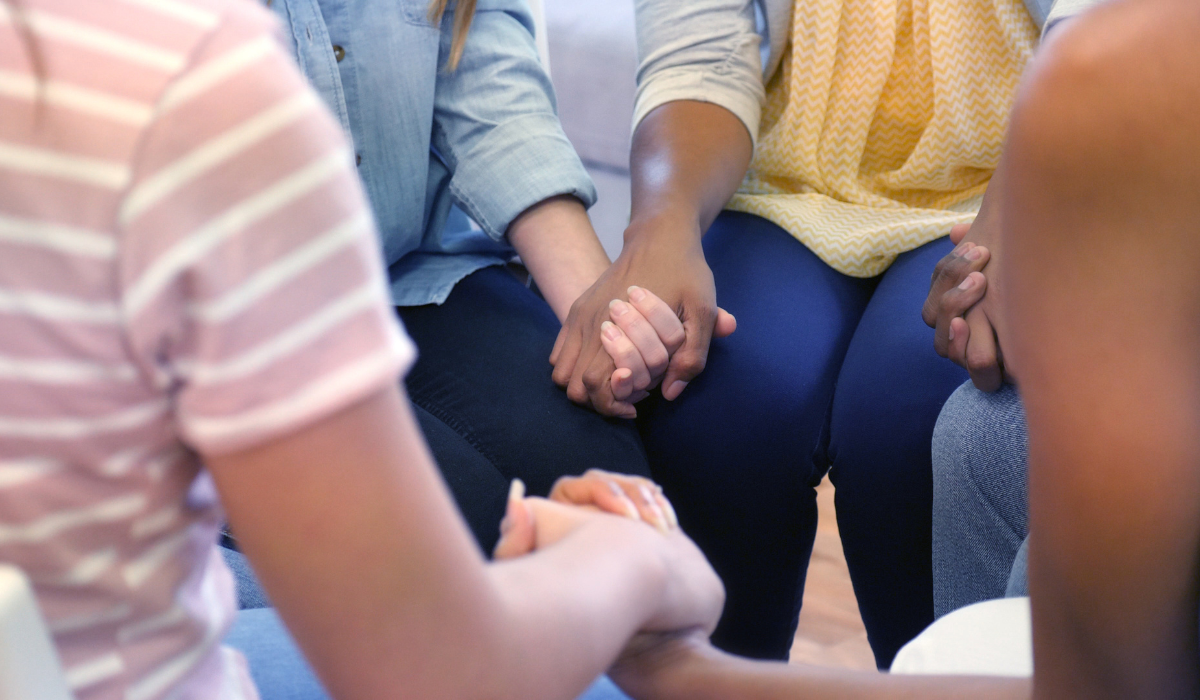Marc Brackett, Founder and Director of the Yale Center for Emotional Intelligence, Says Doing These 3 Things Can Help You Feel Safe and Seen During the Holidays
The holiday season is upon us, and if you feel like you’re on an emotional roller coaster, you’re not alone. Along with the joy and wonder this time of year holds comes stress and maybe even sadness. Add to that the expectation that you should feel a certain way (read: happy, merry everything!) and it can be emotionally challenging to say the least.
Marc Brackett, Ph.D., the founding director of the Yale Center for Emotional Intelligence and author of Permission to Feel, says the first step when it comes to navigating these highs and lows is to recognize that there’s no right or wrong emotion. “There are no correct or incorrect, or even good or bad emotions,” Brackett says. “When you have that kind of mindset—during the holidays and all year long—you’ll be much more accepting of yourself and other people.”
The Sunday Paper sat down with Brackett to learn more about how his new app, How We Feel, can help us build greater emotional awareness, and to ask for his best advice when it comes to feeling safe and seen this time of year.
A Conversation with Marc Brackett
We’re under so much pressure to be happy right now. How can we ditch this expectation?
What I’ve learned is that people who don’t have that expectation of other people or themselves have three top characteristics: they’re empathic; they’re compassionate; and they’re non-judgmental.
If we strive to be empathic toward people, we try to understand their feelings. Then, if we can show them compassion and approach any situation with non-judgment, it’s hard for things to go wrong. If we go into a situation with the expectation of ourselves or of others that it’s the holidays and we’re supposed to be in a celebratory mood, we’re not honoring all of the things that could be making us feel other emotions. Maybe you’re mourning the loss of a loved one and this is a time of deep sadness and grief. Maybe you have some resentment, because your significant other dumped you around the holidays. It could be anything.
You launched a new app designed to help us identify and track our emotions, learn what causes them, and discover new ways to cope. What was your goal in creating it?
The How We Feel app is like a journal for your emotional wellbeing, designed to help people build greater emotional awareness, understand patterns, and learn new strategies to help you regulate your emotions.
When you use the app to check in about your feelings, there are 144 emotions to choose from—and then you can tag your feelings, noting things like who you’re with, what you’re doing, and where you are. You can then analyze your data and choose from 36 different strategies to help you regulate what you’re experiencing. This helps you build emotional intelligence.
This app was a collaboration between Ben Silberman, the co-founder of Pinterest, a team of volunteers, as well as my team at the Yale Center for Emotional Intelligence. Our goal was to create the best product for the most amount of people and for the least amount of cost. Thanks to many generous donations, the app is free.
This week marked the 10-year anniversary of the Sandy Hook Elementary School shooting as well as the news of Stephen ‘tWitch’ Boss, who died by suicide. What’s your advice for those of us struggling right now?
We must give ourselves time to feel sadness and grief. These are hard times; we shouldn’t feel we have to suppress, repress, or deny talking about how we feel. When people aren’t given the opportunity to learn how to have tough conversations about their feelings, they isolate themselves, which doesn’t help. This is why my work is focused on teaching emotional intelligence in schools, starting with preschool. If the mindset is, “Oh my gosh, this bad thing happened, don’t talk about it,” the lesson we learn is that when bad things happen, we shut down. And that’s not healthy.
We must do everything we can to support people with mental health challenges. But if we only focus on dealing with crises or dealing with serious mental health challenges after they’ve been identified, we’ll never reduce the number of people who have these challenges. We must focus on prevention, and help people learn those strategies early on.
How can we navigate this holiday season with more empathy, compassion, and non-judgment—toward ourselves and others—and feel emotionally safe and fully seen?
First, it’s important to recognize that while it’s important to note how we feel, it’s also great to ask ourselves how we want to feel. Maybe you want to feel joyful. If that’s the case, ask yourself, “Who do I need to be around to be joyful?” This year, my husband and I are going to be very quiet. Life has been busy lately, and we’ve often felt overwhelmed. So we asked ourselves, “What are the feelings we want to have this holiday season?” The answer was “calm, content, peaceful, relaxed.” Once we knew how we wanted to feel, we talked about what types of thing would bring us that emotional space. Things like sleeping in, reading books, and having casual dinners with my family are what’ll fill our time.
Also, when we’re feeling sad or angry, we tend to isolate because we don’t want to burden people. Here’s something else to try when you’re feeling sad or lonely or unpleasant feelings: Take a moment to think of someone else who might be feeling that way and reach out to them to check in. You’re not trying to change how they feel; rather, you’re simply showing them that you care. Research shows this helps them feel less isolated and lonely. And when you, the giver of that compassion, witness the shift in the other person as a result of you giving the gift of your company, you feel better! It changes how you feel.
Finally, the more curious we can be about our emotions, the better. We’re always going to be in a better situation when we’re the learner and not the knower. If we can strive to be compassionate emotional scientists as opposed to critical emotional judges, everyone will benefit.
Marc Brackett, Ph.D., is the founding director of the Yale Center for Emotional Intelligence, a professor in the Child Study Center at Yale University and author of “Permission to Feel.”
Question from the Editor: How do you want to feel this holiday season? And how will you be a compassionate emotional scientist—and catch yourself if you’re being a critical emotional judge?




